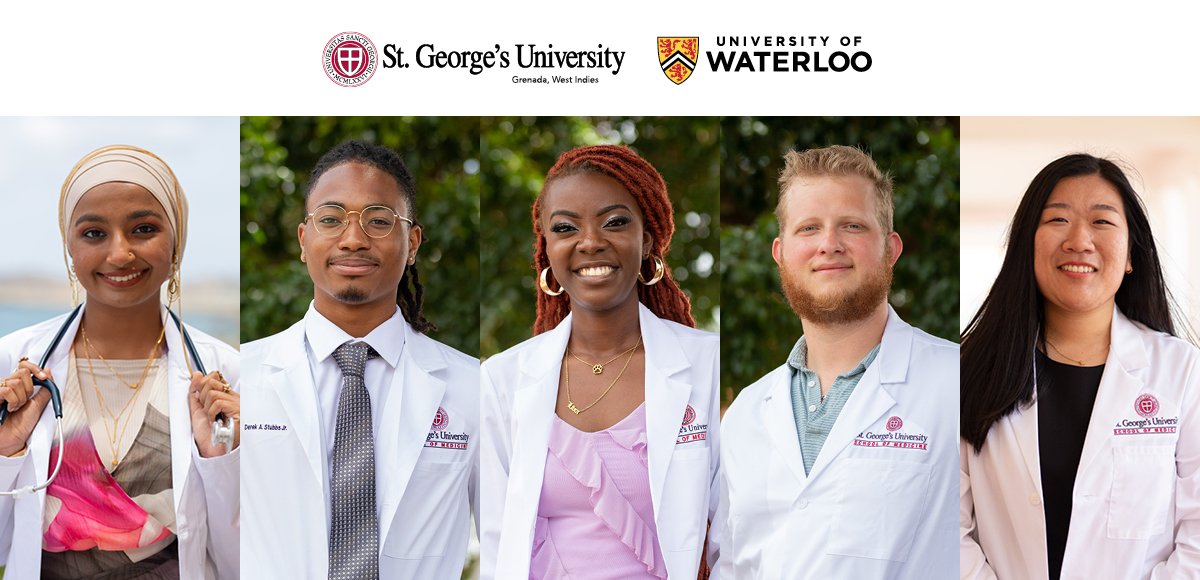School of Medicine
94% US residency placement rate for graduates over the last five years.1
1) Average of 2021, 2022, 2023, 2024 and 2025 residency placement rates. Residency placement rate is defined as the total number of students/graduates who obtained a US residency divided by the total number of students/graduates who applied to a US residency program in a given year as of April 2025.
St. George’s University School of Medicine provides a diverse, multicultural and international environment that empowers students to learn the medical knowledge, clinical skills and professional behaviors to participate in healthcare delivery to people across the world.
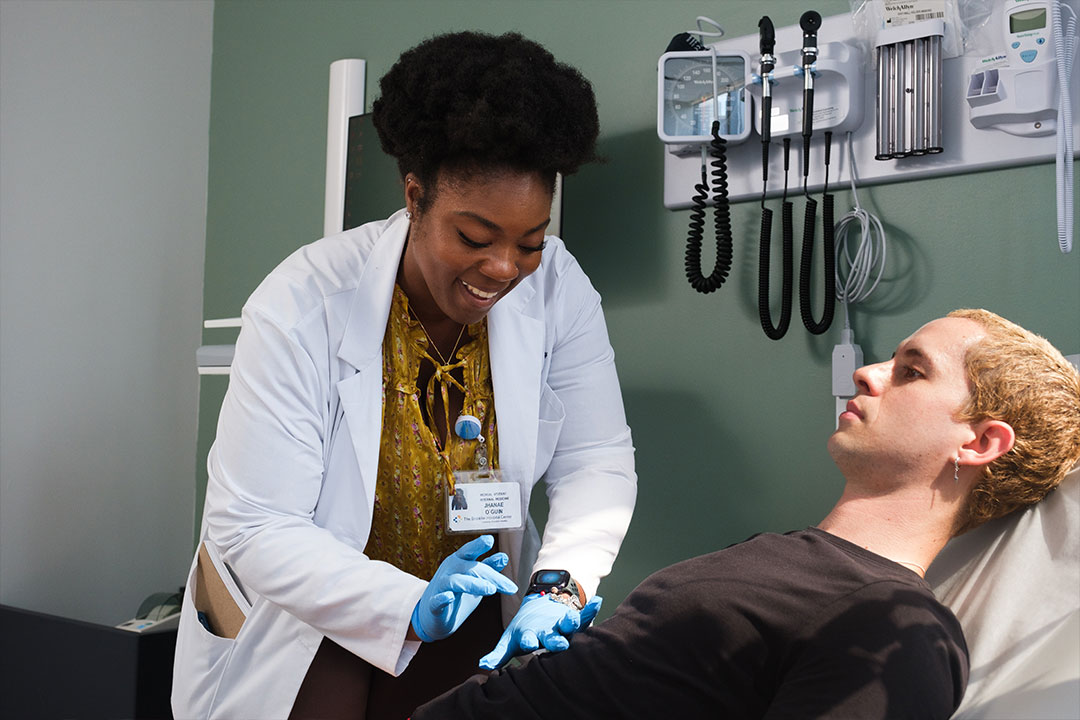
1,035+
US residencies in 2025. No other medical school in the world provides more new doctors to the US healthcare system.2
2) As the medical school graduating the largest number of students per year, SGU places the largest number of graduates into residency programs each year, based on internal SGU graduate/expected graduate and residency placement data as of April 2025.
23K+
School of Medicine graduates3
3) Based on the number of students who have completed the Doctor of Medicine program from 1981-2024.
84%
Pass rate of SGU students from the US taking the USMLE 1 for the first time 2019-2023.4
4) Total results from the five calendar years 2019-2023. First-time pass rate is defined as the number of SGU students passing USMLE Step 1 on their first attempt divided by the total number of SGU students taking USMLE Step 1 for the first time within the given time range. In order to be certified to take USMLE Step 1, students are required to pass all basic sciences courses.
90%
Pass rate of SGU students from the US taking the USMLE 2 for the first time 2020-2024.5
5) Total results from the five academic years 2020-2024. First-time pass rate is defined as the number of US students passing USMLE Step 2 CK on their first attempt divided by the total number of US students taking USMLE Step 2 CK for the first time. USMLE Step 2 CK is typically taken upon completion of third-year core clinical rotations
Explore these MD Opportunities
Doctor of Medicine
Pathway to Matching
At SGU, we offer more than just a traditional four-year medical degree program. With preclinical entry points designed for diverse educational backgrounds, our programs are tailored to students worldwide. Whether you hold a traditional baccalaureate degree or have advanced training, you’ll find a clear and flexible path through our 4-year MD program or our 5-, 6-, and 7-year track options.
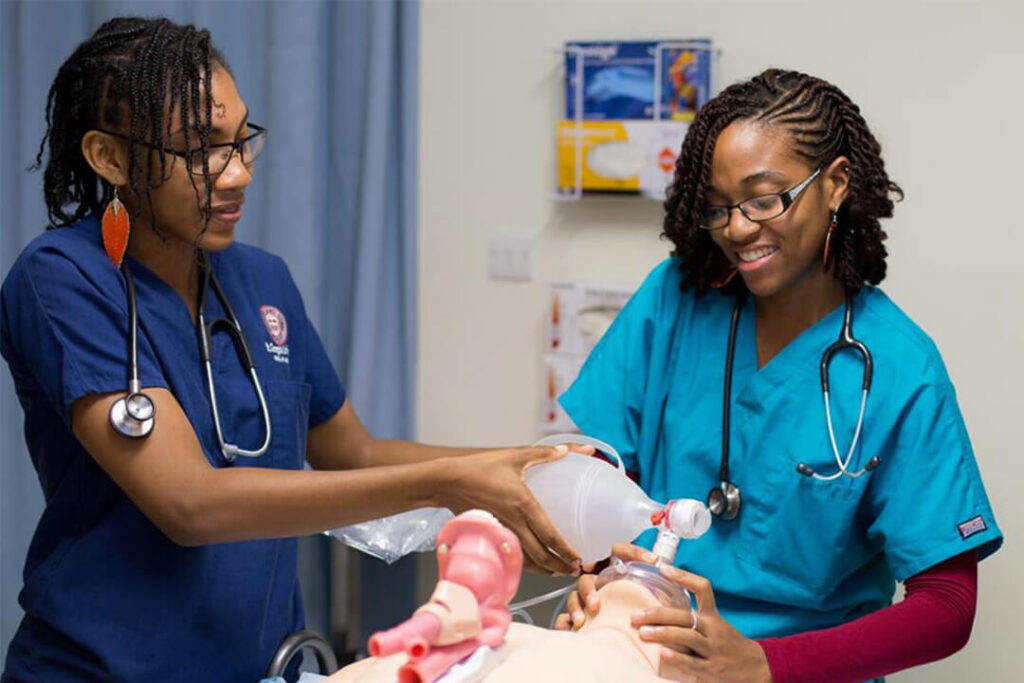
Doctor of Medicine/Master of Public Health (MD/MPH)
Lead the Way in Community Health and Policy
The MD/MPH dual degree equips primary care physicians to tackle global health challenges with a local impact. Gain the skills to enhance patient outcomes through community outreach, shape health policy, conduct public health research, and develop solutions that transcend borders.
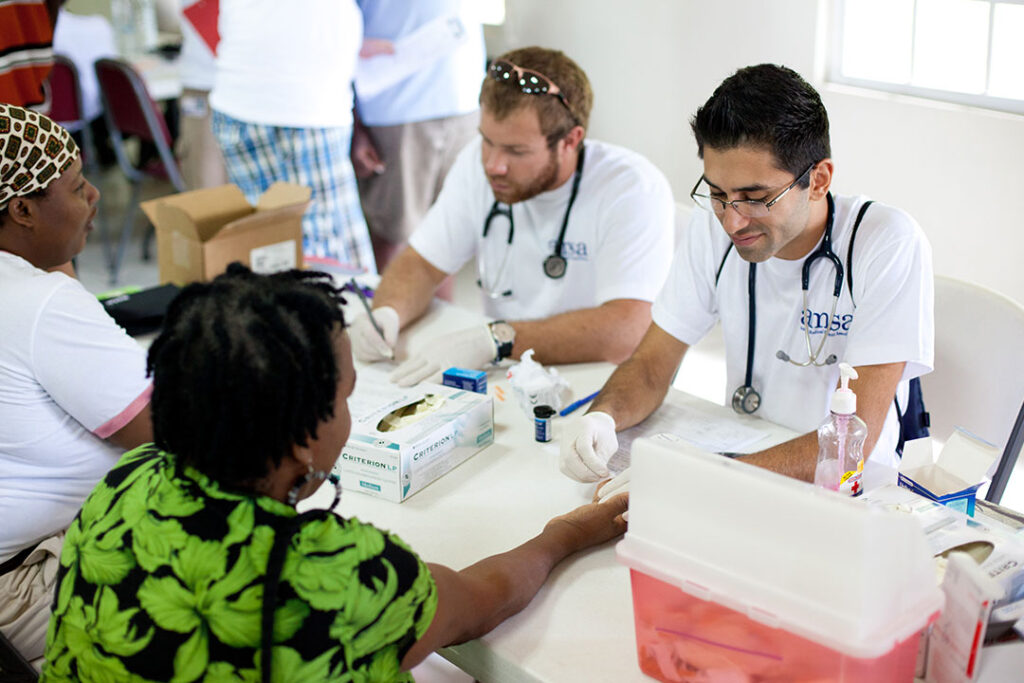
Doctor of Medicine/Master of Science (MD/MSc)
Original and Thesis-Oriented Advanced Research
The MD/MSc dual degree program is designed for medical students seeking careers in specific areas of advanced medical research. Dual MD/MSc degrees are offered in the School of Medicine in: Anatomy, Bioethics, Biomedical Research, Microbiology, Neuroscience, Physiology, and Tropical Medicine.
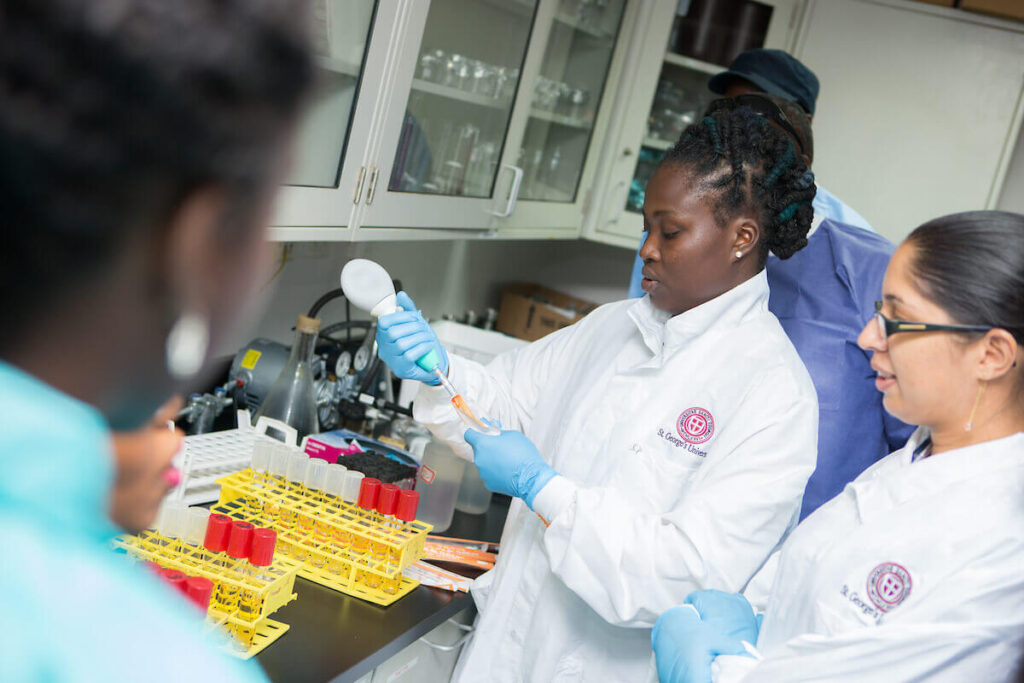
BSc/MD Dual Degree
The dual Bachelor of Science/Doctor of Medicine Degree (BSc/MD) program is designed for students in the preclinical phase of MD program who do not hold a first degree and wish to earn a Bachelor of Science degree at St. George’s University.
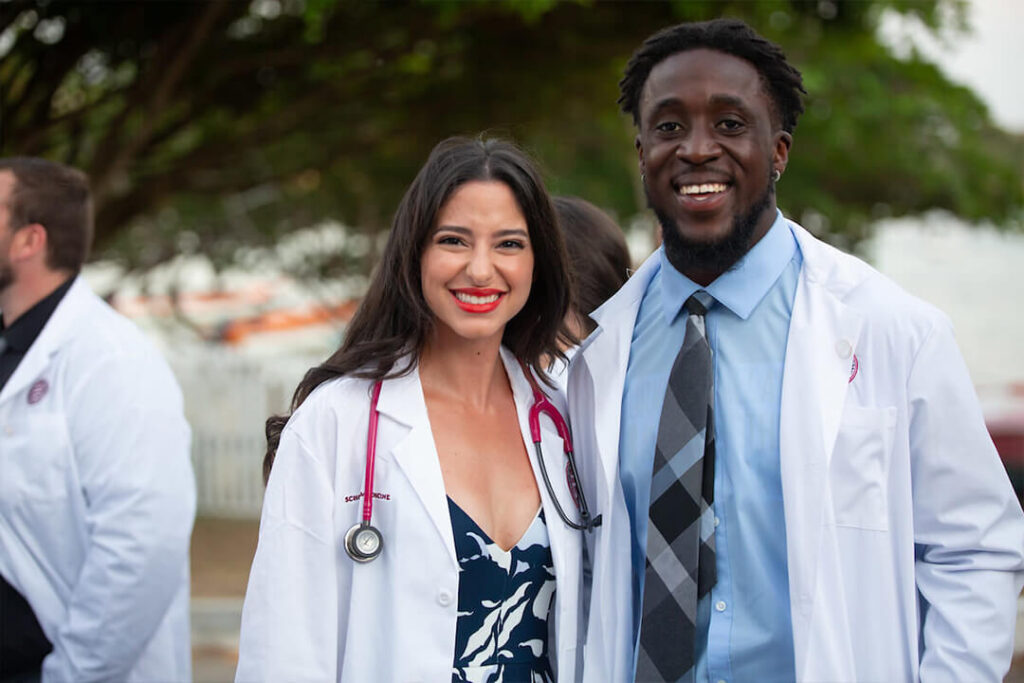
Medical PhD Degree
Advanced Clinical Training and Research
Capitalize on your drive for research and patient care with a medical PhD degree to advance medical science to pursue a career in clinical research or as a medical school instructor. Choose from among four specialty areas for your PhD degree: Anatomical Education, Anatomical Sciences, Microbiology, and Physiology and Neuroscience.
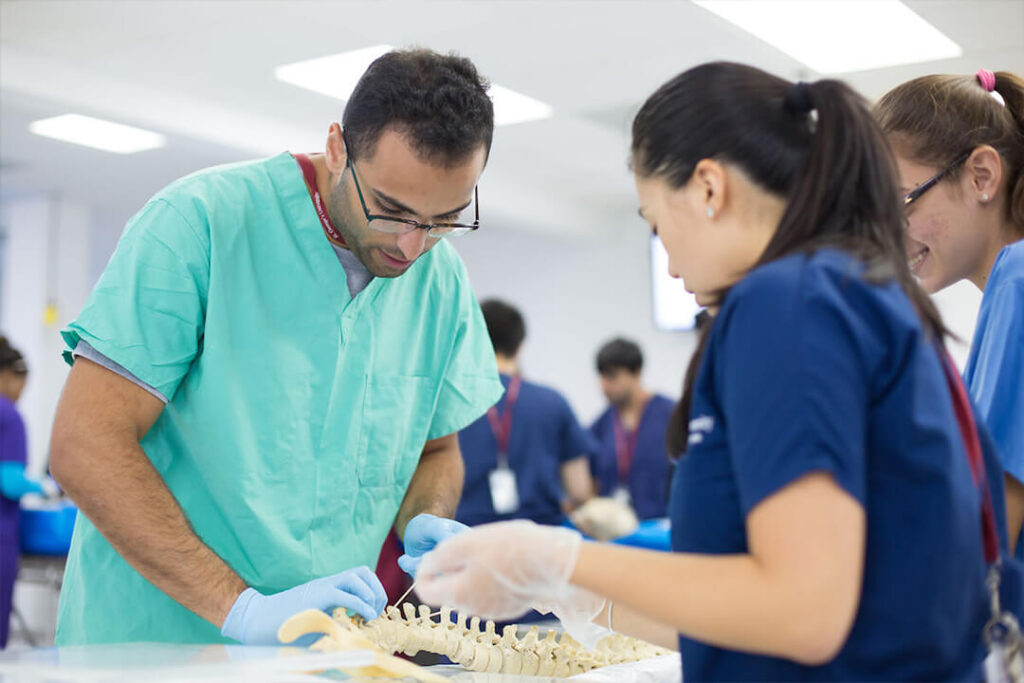
The SGU Difference

Extensive Clinical Training Network
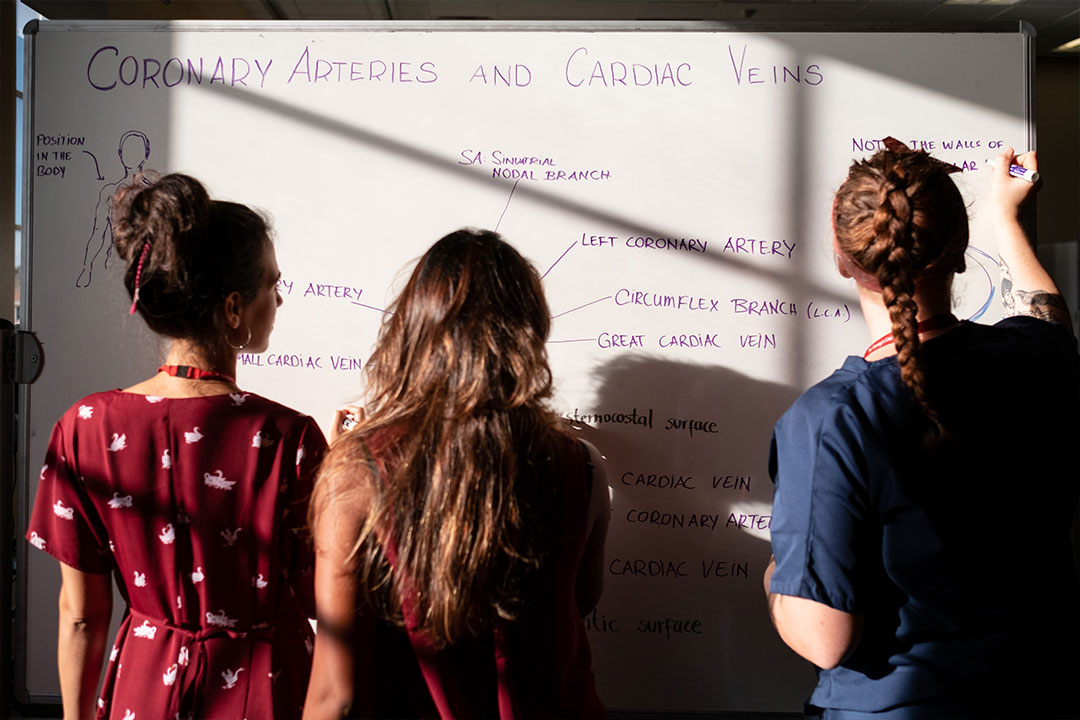
Academic Support Every Step of the Way

A Campus Built for Academic Excellence and Wellness
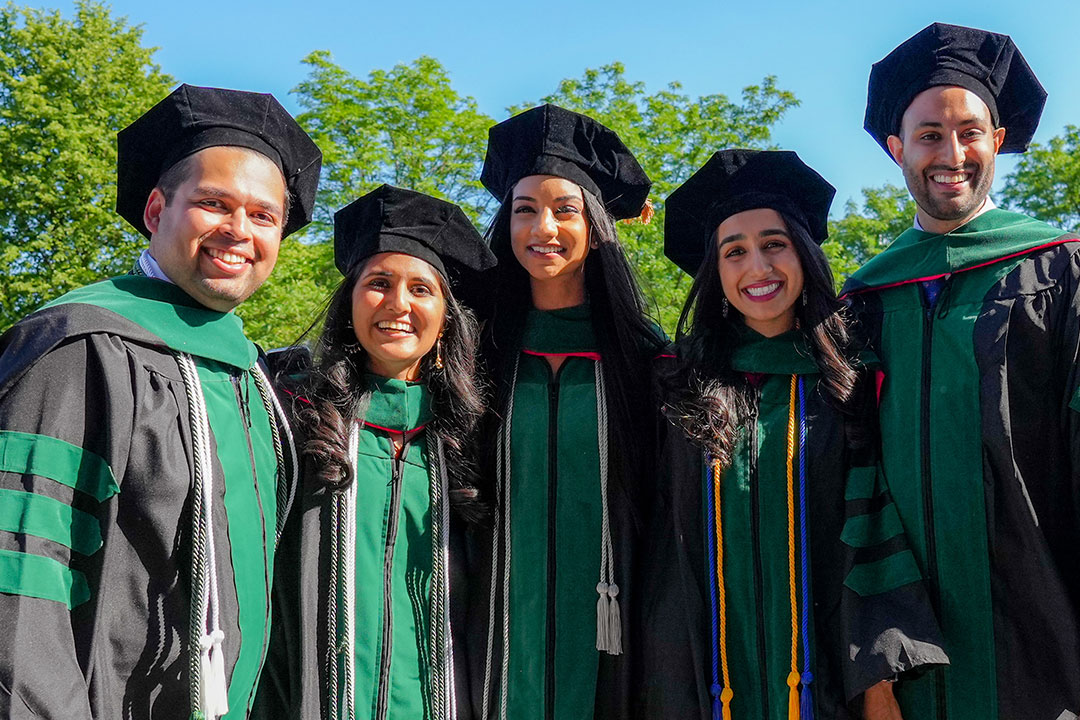
A Legacy of Excellence
3) Based on the number of students who have completed the Doctor of Medicine program from 1981-2024.
Clinical Training
Gain hands-on experience in real healthcare settings. Our network spans 85+ hospitals and health systems in the United States, Canada, and the United Kingdom, offering clinical and ambulatory training to prepare you for a career in medicine.
One MD Degree Program, Three Locations
SGU is truly an international institution, not only with its diverse student body and faculty but the unique opportunity for students to begin their medical education in Grenada or the UK. The two paths feature the same curriculum and provide a strong foundation for SGU’s future physicians. Students have the option of doing clinical rotations either in the US or the UK in the last two years.
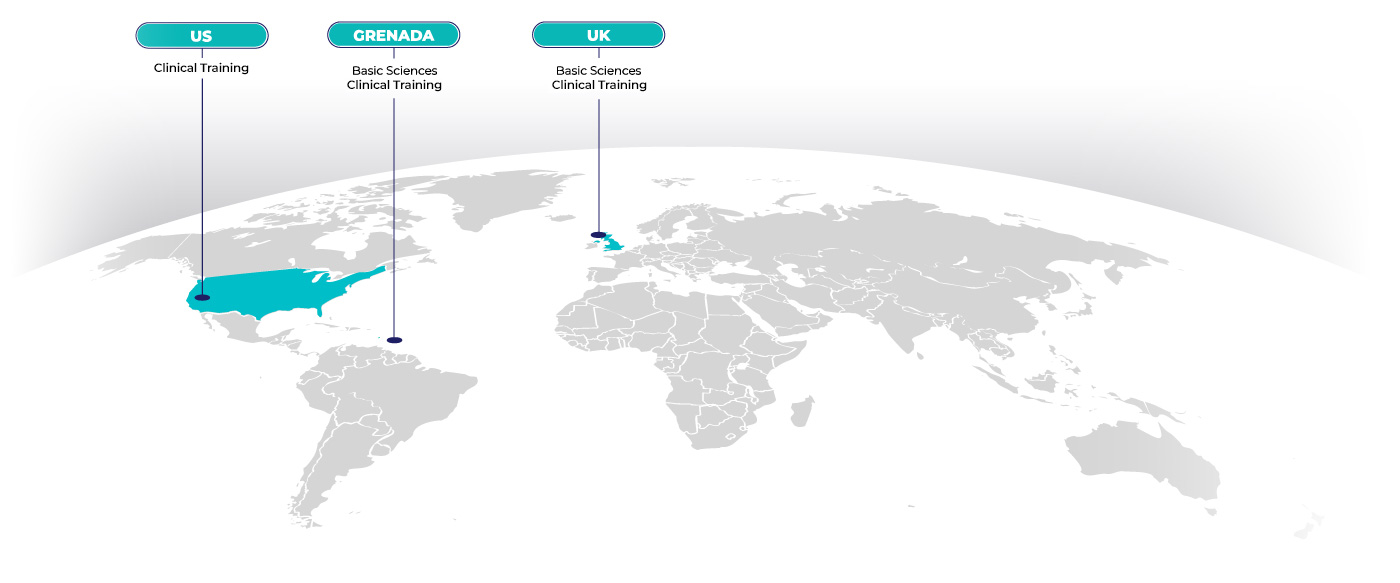
Real Questions. Real Answers.
Hear directly from SGU students and grads as they share honest answers to the most common questions about studying medicine at SGU.
MD '08, MSc '20

Purpose-Built for Academic Excellence and Wellness
Our 42-acre campus in Grenada is built for academic success and personal well-being with modern classrooms, dedicated study space, a full fitness center, and many of the comforts of home.
Upcoming Info Sessions
Join us for in-person or virtual information sessions on academics, admissions, and scholarships, led by admissions representatives and including live Q&A with students and alumni.
From Dr.eam To Doctor
Learn more about our MD program and tracks
Every aspect of our MD program and tracks are intentionally designed to support you on your path to becoming a physician.
Flexible Start Dates: Choose from multiple entry terms in August, January, or April to begin your medical education at your convenience.
Average of 2020, 2021, 2022, 2023 and 2024 residency placement rates. Residency placement rate is defined as the total number of students/ graduates who obtained a US residency divided by the total number of students / graduates who applied to a US residency program in a given year as of October 2024.
Program and Track Highlights
- Global Recognition: SGU’s School of Medicine has been continuously accredited for decades, enabling our students to be eligible to practice in the US.
- Clinical Training: 85+ hospitals and health systems in the US, UK, and Canada offer clinical and ambulatory training and support.
- Legacy of Excellence: Join the network of over 23K+ graduates* who have impacted healthcare worldwide.
*Based on the number of students who have completed the Doctor of Medicine program from 1981-2024.

Connect With Us.
- Learn more about our MD program and tracks
- Receive priority invitations to our prospective student events
We will be in touch soon, but if you have questions now, email us at admissions@sgu.edu

